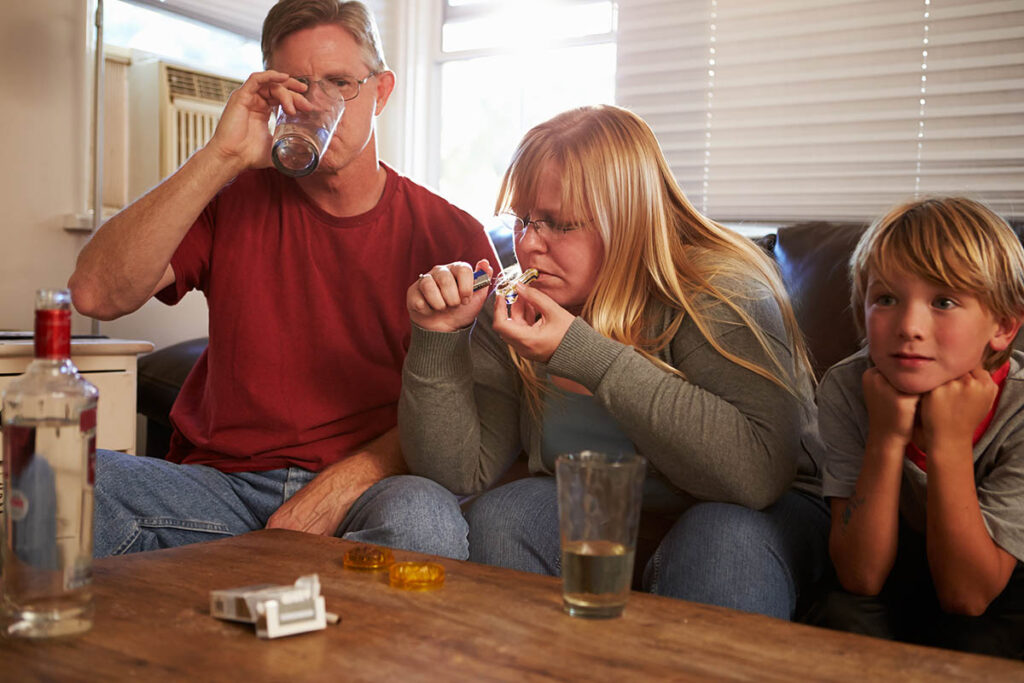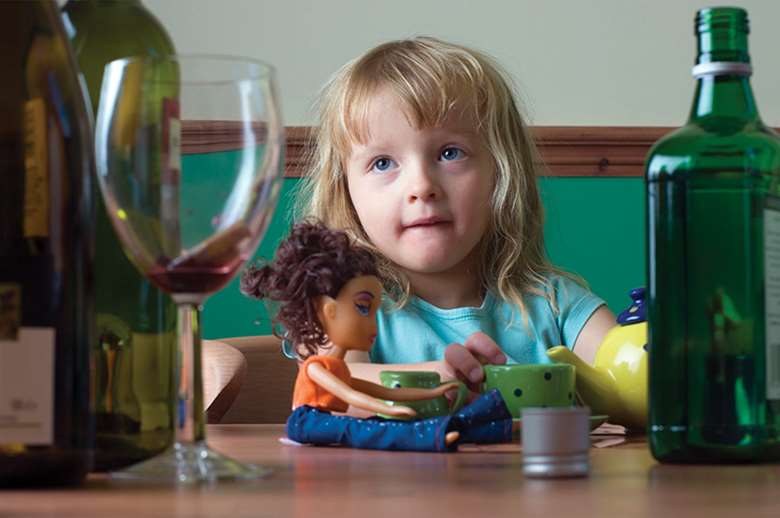Substance abuse is a pervasive issue that affects not just the individuals struggling with addiction but also their families. The impacts of substance abuse on families far beyond the person using substances.
A study conducted by the Kaiser Family Foundation, which surveyed 1,327 U.S. adults between July 11 and July 19, highlights the widespread impact of addiction.
The study revealed that 19% of people reported personal experience with addiction, while 62% said a family member had experienced addiction. Alarmingly, impacts of substance abuse on families effects nearly 1 in 10 respondents reported that a family member had died of a drug overdose.
Last year alone, an estimated 110,000 people in the U.S. died of drug overdoses, marking the highest number ever recorded.
In this article, we explore the ten harmful impacts of substance abuse on families and provide practical steps on how to deal with parental substance abuse.
By recognizing these detrimental impacts of substance abuse on families and adopting strategies to cope with them, families can find a way to navigate the complexities of substance abuse.
10 Harmful Impacts Of Substance Abuse On Families
Substance abuse can profoundly affect families, often leading to various detrimental consequences.

Here are ten harmful impacts of substance abuse on families:
1. Mental Agony
A person who drinks too much alcohol or takes too many drugs can make family members feel nervous, sad or angry. They never know what that person will do next – their behaviour is always changing and unpredictable.
This emotional state often causes long-term damage to mental health and makes families fall apart as they start to feel like there’s nothing they can do about it except give up hope.
2. Money Troubles
The money that gets spent on drugs or alcohol is usually very high which means the person addicted has to find a way of keeping the supply going.
This sometimes leads them into trouble with the police and then they lose their job because nobody wants someone working for them who’s been arrested.
Other people in the family have to pay for everything because all their wages go on paying off debts, bills don’t get paid so more debt is built up.
Sometimes the only thing left to sell is the house or flat where everyone lives together – this means having nowhere else to live either.
3. Neglected Duties
When you’re drunk or stoned all day, it’s hard enough remembering your own name let alone what needs doing around the house. Other people in the family have no choice but to do these things themselves because if they don’t then nobody will.
They have to look after younger brothers and sisters, clean up after you and even go out and find work because otherwise everyone will end up homeless through no fault of their own.
4. Trust Issues
One of the most harmful impacts of substance abuse on families is the prevalence of trust issues.
You might think lying doesn’t matter when you’re high but it does – especially when nobody believes anything that comes out of your mouth anymore. You’ve made so many promises before that were broken within minutes so why should anyone trust what you say now?
Nobody knows if they can rely on each other anymore which leads to constant arguing over every little thing. It also means there’s no one left in the family who’ll stick by you through thick and thin because they’re too busy looking after themselves.
5. Violent Behavior
Drugs and alcohol can make people do terrible things – especially when they’re angry or upset. You might not mean to hurt anyone but if something sets you off then nobody’s safe from being on the receiving end of your temper.

This means living in fear every day wondering what’s going to happen next – will it be another screaming match or something worse? It also means no one feels safe at home anymore which is why most families split up when someone starts using drugs heavily.
6. Psychological disorders:
PTSD, depression, and anxiety are some of the mental health problems that can be caused by the stress and confusion associated with living with a substance abuser.
Even after drug use is stopped, these impacts of substance abuse on families may remain and lower the quality of life for those affected in general.
7. Social alienation:
Shame, guilt, or unpredictability of substance abusers’ behavior may make families withdraw from society and isolate themselves because they do not want others to know what they are going through.
Therefore, when such things happen nobody else will understand them which leads to a lack of a social support system making one feel lonely hence limiting their ability to seek assistance.
8. Adverse effects on children:
Emotional, behavioral, and academic challenges among children from homes where substance abuse is prevalent are common.
They often suffer from an insecurity complex; this may cause them to have low self-esteem or become aggressive/withdrawn thereby compromising their future growth and potential success in life
9. Trauma across generations:
The impacts of substance abuse on families does not only affect one person but it has far-reaching impacts even beyond immediate family members who experience emotional pains because of learned behaviors which were acquired during such times.
Such behaviors may predispose kids brought up under these conditions into having their own mental health problems plus alcohol addiction at some stage in later years.
10. Legal issues:
Substance abuse frequently results in legal troubles that worsen relations within families e.g., arrest, attending court sessions, or imprisonment if found guilty among others depending on the gravity involved
All these can lead to financial crises as well as damaging reputation stability for every member involved in an affected household setting.
Read More: How To Prevent Teen Substance Abuse: 10 Helpful Tips for Parents
How To Deal With Parental Substance Abuse?
Working with parents who abuse substances is a very hard and delicate situation. Here are some strategies and steps to manage or deal with this:

1. Learn Yourself:
It’s essential to know substance abuse. Learn about dependence, what it does to individuals and how they can get help.
This information gives you the ability to see things from their point of view which makes supporting them easier for you while also helping navigate through these tough times.
2. Find Professional Assistance:
You should reach out to therapists, counselors or social workers dealing with drug addicts because such people have the right knowledge on how to handle such cases.
Therefore, they will give direction, counsel and provide resources that can benefit both the parent struggling with an addiction as well as other family members affected by this condition.
3. Support Treatment Seeking Behaviour:
Where possible try your best in motivating him/her towards seeking treatment for their drug problem; including detoxification programs among others like rehab centres etc.
When talking about it be loving but not judgemental so much more especially on physical wellbeing after quitting drugs since also helps improve family relations.
4. Take Care Of Yourself:
Ensure that your mental health comes first by doing things which make you happy or bring peace into your mind. Seek professional assistance where necessary considering self care is taking care of others thus requires enough energy plus resilience particularly during recovery time.
5. Be Optimistic:
Someone may take even decades before fully recovering from being dependent on illegal substances but still maintain positivity throughout for these changes are always possible over time;
Thus celebrate each milestone achieved along this path since supporting our loved ones in healing demands persistence however positive change too needs some effort together with waiting patiently.
To do all these will lower down effects of parental substance abuse while at the same time fostering an environment where healing among them can occur
Read More: Dealing With Narcissistic Parents: 5 Practical Things You Can To Safeguard Yourself!
What Is Family Anonymous?

Families Anonymous (FA) is a 12-step fellowship program that helps relatives and friends of people who have drug, alcoholic or related behavioral problems.
This program provides common support and understanding on the basis of shared experience with other 12 step programs such as Alcoholics Anonymous (AA).
The program uses steps for personal growth taken from Alcoholics Anonymous but these ones are more about spiritual development than stopping drinking. They stress self-awareness, acceptance, forgiveness among others.
However much it is about helping those close to us grow; family anonymous also recognizes self care as key to wellbeing therefore mental wellness should be part and parcel of each member’s focus during their recovery journey.
Anonymity is one of the core values upheld by FA where names or any other personally identifiable information disclosed during meetings remains private thus fostering trust among attendees.
Joining families anonymous depends entirely on individual’s will since it does not attract any fee nor charge subscriptions fees; this makes funding voluntary through contributions made by themselves alone.
Families anonymous acts like a caring community for people affected by loved ones’ substance abuse disorders or behaviour problems thereby enabling them discover peace within themselves while gaining strength from others who have undergone similar situations.
Read More: Emotional Blackmail From Family: 5 Helpful Tips To Protect Yourself!
A Word From Mind Family
Substance abuse can have devastating effects on families, creating a cycle of emotional, financial, and physical turmoil. Recognizing these impacts is the first step toward addressing them effectively.
At Mind Family, we are dedicated to providing information, support, and resources to help families cope with substance abuse.
Remember, you are not alone.
With the right strategies and support, it’s possible to create a path towards healing and recovery for the entire family. Stay informed, seek help, and prioritize your well-being. Together, we can overcome these challenges and build a healthier future.
Frequently Asked Questions (FAQs)
What are common impacts of substance abuse on families?
Emotional distress, financial strain, neglect of responsibilities, broken trust, domestic violence, mental health issues, social isolation, negative impact on children, intergenerational trauma, and legal problems.
How can families deal with parental substance abuse?
Educate yourself, seek professional help, encourage treatment, take care of yourself, stay hopeful, educate children, and seek legal advice if necessary.
What is Families Anonymous (FA)?
FA is a 12-step fellowship supporting relatives and friends of those with substance abuse. It offers mutual support, follows a 12-step approach, emphasizes self-care, and maintains anonymity.















Leave a Reply